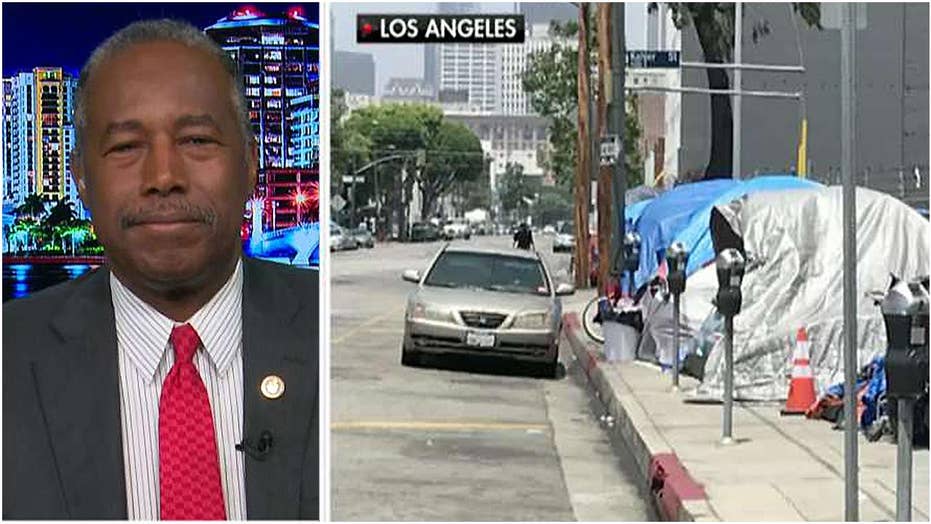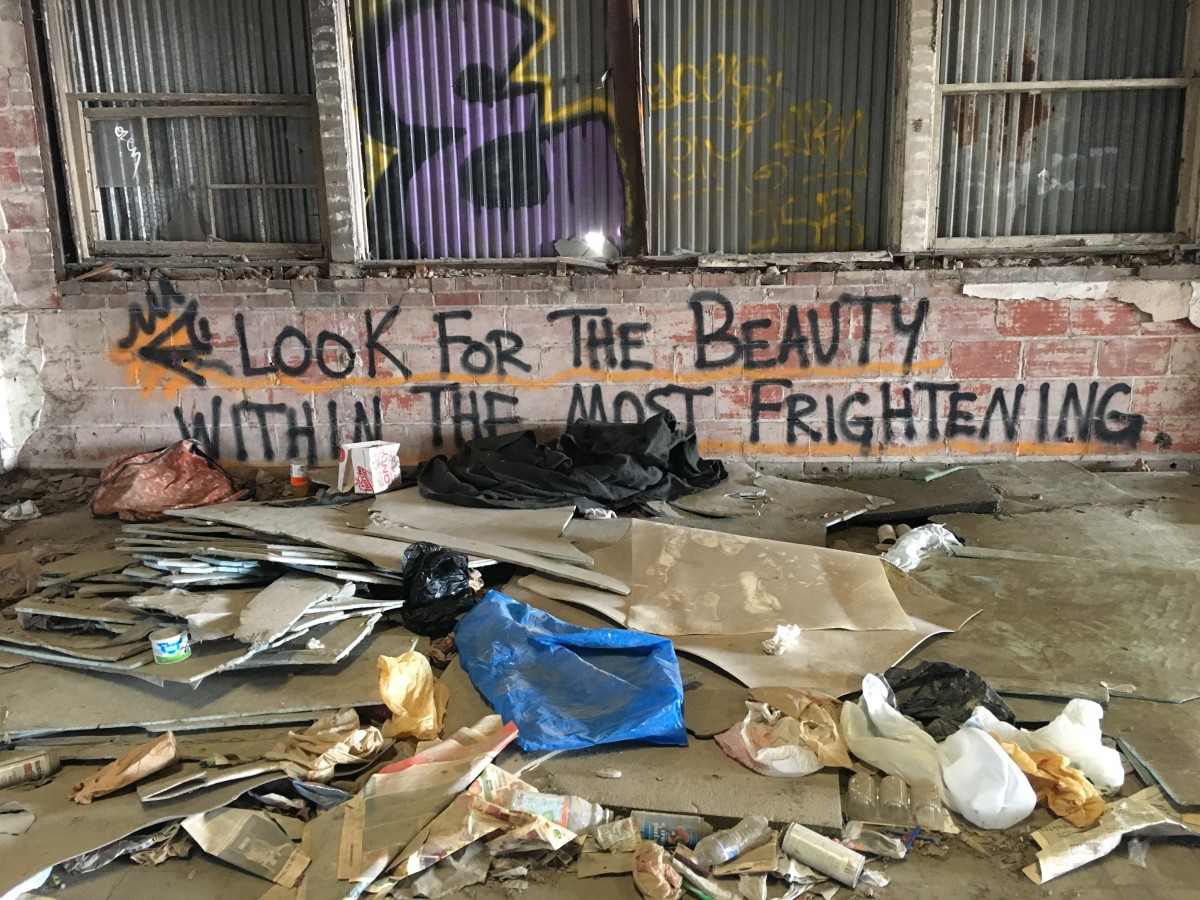 |
| metro.co.uk |
It is a lovely Monday, Presidents Day, not President's Day, in the United States. Speaking of presidents, the next round of primaries and caucuses are March 3, 2020, Super Tuesday. This will be a big test for VPOTUS Joe Biden and Senator Elizabeth Warren (D-MA) to see if their candidacies remain viable. For Senator Bernie Sanders (I-VT), the test will be to if union voters in Nevada are on board with his "Medicare for All" plan. For Mayor Peter Buttigieg (D-IN) and Senator Amy Klobuchar, they will find out if their moderate message resonates with a more diverse electorate. If you have not registered to vote or need registration information, stop reading, go to usa.gov, then come back and read the post.
Today, we are going to look at a proposed executive order that favors a more aggressive approach to the intractable problem of homelessness. About two months ago, conveniently timed before the winter holidays, the White House announced it was planning to take decisive action, eschewing policies long advocated by advocates, including an executive order on homeless encampments.
 |
| Housing and Urban Development Secretary Ben Carson essence.com |
Kriston Capps reported, "Advocates say that they expect an executive order on homelessness to assign new resources to police departments to remove homeless encampments and even strip housing funds from cities that choose to tolerate the encampments" (citylab.com; Dec. 17, 2019; date accessed Feb. 11, 2020).
On June 25, 2019, the White House issued an executive order, "Establishing a White House Council on Eliminating Regulatory Barriers to Affordable Housing," whose purpose is to remove the the federal regulations that impede low- and middle-class families and individuals from accessing an affordable places to live. The executive order establishes a inter-agency council that would work with the public and private sector to solicit relevant housing data; identify regulations and administrative practices that increase the costs of housing development; evaluate and quantify the effects of regulatory barriers have on housing development and the economy; evaluate the actions agencies can take; recommend actions; reduce and streamline statutory, regulatory, and administrative burdens at all levels; encourage all levels of government to reduce barriers to housing development (whitehouse.gov; June 25, 2019; date accessed Feb. 11, 2020). That was in June 2019 now homeless advocates believe that the December executive order on homelessness is one of several efforts being directed by the White House's Domestic Policy Council and the the U.S. Department of Housing and Urban Development.
 |
| foxnews.com |
In December, HUD Secretary Ben Carson met with officials in Houston, Texas as part of an effort by the federal government that could spread to other cities. During his time in Houston, Secretary Carson toured an emergency shelter and was scheduled to tour a Harris County jail facility--where Houston is located. HUD officials were checking out real estate in several cities since the autumn when news of the latest homeless-related executive order broke. The order was announced in September and was directly aimed at California, in particular Los Angeles, raising serious concerns from homeless advocates. Kriston Capps and Sarah Holder reported, "According to a report in the Washington Post, President Donald Trump has ordered White House officials to come up with a solution to the visible homelessness crisis in Los Angeles and possibly other California cities..." (citylab.com; Sept. 11, 2019).
Secretary Carson's Houston visit was another indication that the White House is angling for a more hands-on approach to tackling homeless people. Mr. Capps reports, "Advocate say that the government is looking closely at way to turn former correctional facilities and federal buildings into shelters, a controversial approach backed Robert Marbut, the newly appointed White House czar on homelessness .
 |
| msn.com |
A Washington D.C.-based housing advocate told CityLab "that HUD has narrow its focus to a list of 24 cities and states, all of which have large numbers of unhoused people sleeping outside" (citylab.com; Dec. 17, 2019). Take a look at the map on the left. What you find is that most of the targeted cities are on the West Coast. This is a deliberate choice by the White House aimed at publicly humiliating more progressive officials by taking a more active approach. Houston is among the cities on a list, obtained by CityLab, where local and regional entities--continuums of care (CoCs)--are staring at a high unsheltered count. In addition to the targeted cities, four additional cities with a homeless population count are on the list.
Although Houston made it onto HUD's potential action list, the city has made major strides in recent years in mitigating homelessness, relative to other Texan cities. Over the past decade, the city has reduced the number of people experiencing homelessness by over half. Despite the uptick in the number of unhoused in the wake of Hurricane Harvey, the trend is downward or stable, unlike Dallas or Austin (citylab.com; Dec. 17, 2019).
 |
| psmag.com |
Be that as it may, housing advocates are worried that the White House's punitive approach for Houston--and other Texan cities--homeless encampments are out in the open. Eva Thibeaudeau, the CEO of Temenos, a community development corporations that operates about 140 performance supportive housing, told CityLab,
I hope that what [Carson] takes away is that if you really turn all your resources to permanent housing and ending homelessness, instead of managing the condition of homelessness, it can have dramatic results,... (citylab.com; Dec. 17, 2019).
To give you an idea of how much of a decline in homelessness Houston has experienced, "Since 2011, the city has marked a 54 percent decline in people experiencing homelessness, according to local point-in-time counts" (Ibid). Ms. Thibeaudeau credits the decrease in the number of people sleeping on the sidewalks to the "...city's adherence to set principles known as Housing First" (Ibid). This policy allow Houston to place more than 18,000 people in permanent housing with their own leases. Ms. Thibeaudeau said,
 |
| Robert Marbut citylab.com |
A program, like Housing First, run counter to the approach preferred by Robert Marbut, named director of the U.S. Interagency Council on Homelessness in early December. Mr. Marbut has argued for shelters that place barriers to alcohol-addiction treatment. Case in point, Mr. Marbut founded a shelter in San Antonio, Texas, Haven for Hope, which forces addict-alcoholics, facing chronic homelessness because of their illness of the mind, body, and soul, to sleep outside in an open courtyard until they can pass a drug test. In contrast, Temenos, manages so-called wet-housing: "The group works with city and county officials and sobering centers to identify people struggling with long-term alcoholism and addiction who are facing chronic homelessness and give them permanent support,..." (Ibid)
When the White House release a report on homelessness in September, it indicated a shift from the Housing First approach, toward the long favored direction of the Interagency Council on Homelessness. Instead of allocating resources to permanent solutions, including alcohol-addiction treatment, the White House is leaning toward a greater role for law enforcement, with the emphasis on shelters that hide homeless people away from the general population in large centralized facilities.
| Portland, Oregon Mayor Ted Wheeler patch.com |
Kriston Capps reports, "Late in November [2019], an official at HUD sent an email to Portland Mayor Ted Wheeler and other officials in Oregon to express Carson's interest in determining whether an unused jail in Portland could be repurposed for a pilot program to address homelessness, according to a report in a Willamette Week" (Ibid). Two months before the email, HUD Secretary Ben Carson and other officials toured a former federal office building just outside Los Angeles, which drew concern from homeless advocates that the White House was planning a crackdown on Skid Row's homeless population.
The White House may expand its homelessness agenda to cover other fronts. Special assistant to the president for domestic policy, Benjamin Hobbs, has drafted an executive order that may or may not see the light of day. Regardless, the proposed executive order "would reinforce the dynamic in Texas, where the conservative governor has sought to overrule the work of liberal leaders in Austin to legalize tent encampments" (citylab.com; Dec. 17, 2019).
| Maria Foscarinis Executive director of the National Law Center on Homelessness & Poverty nlchp.org |
We're thrilled that the court has let the 9th Circuit decision stand so that homeless people are not punished for sleeping on the streets when they have no other option,... But ultimately, our goal is to end homelessness through housing, which is effective and save taxpayer dollars, so that no has to sleep on the streets in the first place (usatoday; Dec. 16, 2019; date accessed Feb. 17, 2020).
As part of the White House's campaign to criminalize homelessness, the administration has aggressively pushed to strip Housing First language from funding measures from an appropriations bill passed in mid-December. However, the bill retained the language from 2018 "that prioritizes funds for groups that adhere to Housing First goals" (citylab.com; Dec. 17, 2019).
A complete ban on homeless encampments or de-funding organizations that prioritize housing over alcohol-addiction and mental health treatment still faces legal road blocks. Even legal obstacles may not stop the Trump administration from implementing a strategy describe by local leaders "as an about-face from what they've been pursuing for years" (citylab.com; Dec. 17, 2019).
The Trump administration's aggressive campaign to criminalize homelessness is another short-sighted approach to tackling a crisis. Prosecuting men and women forced to sleep out on the street because they have been turned away from already bursting-at-the-seams shelters is not a medium- or long-term solution. You get someone off the streets for maybe a night but they are right back out again. Some deliberately get arrested in order to have a something to eat and a place to sleep. Others cannot remain in any housing situation because of untreated mental illness or severe alcohol-addiction issues. Yet there are many more who have been forced out of their homes because they no longer can afford the American ideal of a single family home. Thus what is needed is a more comprehensive strategy that addresses different aspects of homelessness. Simply arresting people or moving them to re-purposed vacant buildings, a distance from the city centers without a support program in place seems counter productive to dealing with a multi-pronged intractable crisis. If the present or any future White House is serious about a permanent solution of homelessness, it will have to implement a plan that address the specific needs of homeless men and women without criminalizing them.
No comments:
Post a Comment